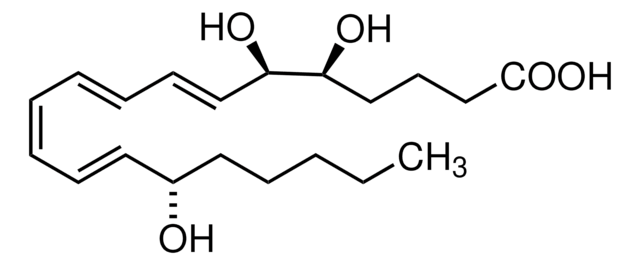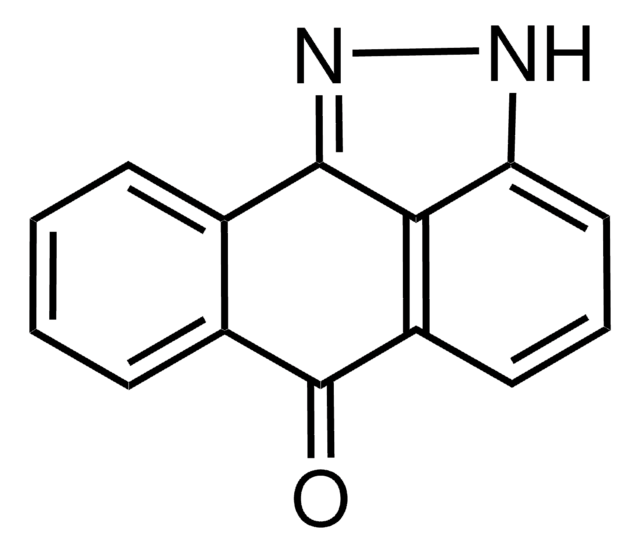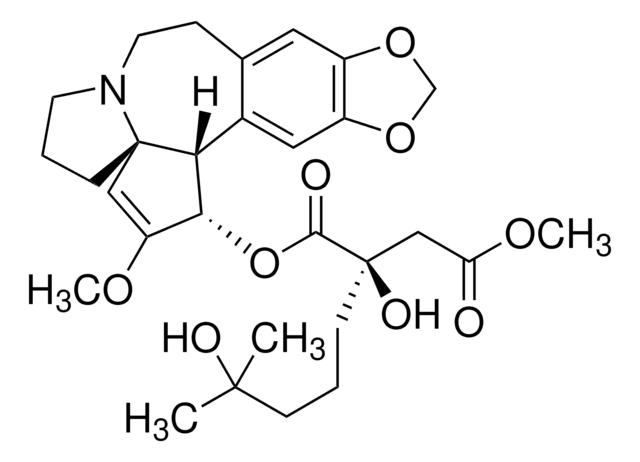A9789
Anisomycin
from Streptomyces griseolus, ≥98% (HPLC), solid, protein synthesis inhibitor
Synonym(s):
(2R,3S,4S)-2-(4-Methoxybenzyl)-3,4-pyrrolidinediol-3-acetate, 2-[(4-Methoxyphenyl)methyl]-3,4-pyrrolidinediol 3-acetate, Flagecidin
About This Item
Recommended Products
Product Name
Anisomycin from Streptomyces griseolus, ≥98% (HPLC), solid
Quality Level
assay
≥98% (HPLC)
form
solid
color
white to faint yellow
solubility
H2O: 2 mg/mL (Aqueous solutions are stable over a wide range of pH at room temperature.)
DMSO: 20 mg/mL
methanol: 20 mg/mL
antibiotic activity spectrum
neoplastics
mode of action
protein synthesis | interferes
storage temp.
2-8°C
SMILES string
COc1ccc(C[C@H]2NC[C@H](O)[C@H]2OC(C)=O)cc1
InChI
1S/C14H19NO4/c1-9(16)19-14-12(15-8-13(14)17)7-10-3-5-11(18-2)6-4-10/h3-6,12-15,17H,7-8H2,1-2H3/t12-,13+,14+/m1/s1
InChI key
YKJYKKNCCRKFSL-RDBSUJKOSA-N
Looking for similar products? Visit Product Comparison Guide
Related Categories
Biochem/physiol Actions
Caution
signalword
Danger
hcodes
Hazard Classifications
Acute Tox. 3 Oral
Storage Class
6.1C - Combustible acute toxic Cat.3 / toxic compounds or compounds which causing chronic effects
wgk_germany
WGK 3
flash_point_f
Not applicable
flash_point_c
Not applicable
ppe
Eyeshields, Faceshields, Gloves, type P2 (EN 143) respirator cartridges
Choose from one of the most recent versions:
Already Own This Product?
Find documentation for the products that you have recently purchased in the Document Library.
Customers Also Viewed
Our team of scientists has experience in all areas of research including Life Science, Material Science, Chemical Synthesis, Chromatography, Analytical and many others.
Contact Technical Service









